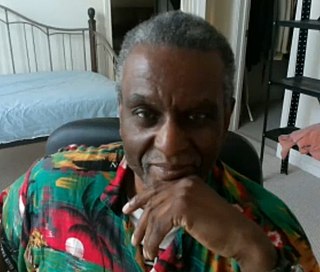A Quote by David Oyelowo
I truly believe slavery is why, as a by-product, we still have a disproportionate amount of black men incarcerated in the USA. It is an extension of that legacy, and that's not going to start to diminish until black people have a new sense of themselves that isn't tied to slavery and feeling inferior. I think the church can be instrumental in that, in terms of repentance, reconciliation and just being more embracing of each other - not just on Sunday, but in life generally.
Quote Topics
Amount
Being
Believe
Black
Black People
By-Product
Church
Diminish
Disproportionate
Each
Embracing
Extension
Feeling
Generally
Going
Inferior
Instrumental
Just
Just Be
Just Being
Legacy
Life
Men
More
New
Other
People
Product
Reconciliation
Repentance
Sense
Slavery
Start
Still
Sunday
Terms
Themselves
Think
Tied
Truly
Until
Usa
Why
Related Quotes
I truly believe slavery is why, as a by-product, we still have a disproportionate amount of black men incarcerated in America. It is an extension of that legacy, and that's not going to start to diminish until black people have a new sense of themselves that isn't tied to slavery and feeling inferior. I think the church can be instrumental in that, in terms of repentance, reconciliation and just being more embracing of each other - not just on Sunday, but in life generally.
I truly believe that one of the things that has been lacking in America is a spirit of repentance about the injustices of slavery and the injustices of segregation and racism generally. I truly believe that we cannot come to a place of reconciliation until there is individual repentance and corporate repentance.
I wanted to make sure the focus [in The Land] was on human beings themselves and their decisions, but still connected to the urban environment that people associate as being black. I think I was able to make a film without commenting on "black this or black that" and you still feel the presence of it. There's no one character who's saying "we're all black and we're all in this struggle." It's that you just feel it. Some of that is because we get the sense from a lot of independent films that black people struggle all the time.
In the era of slavery, you could be a so-called Afro-Cuban one day and a so-called Black American the next day, or vice versa. I mean there was all this back and forth, and there was a lot of opposition in Black America to slavery in Cuba in particular, because slavery in Cuba lasted until the 1880s.
The true story is that black people need to tell their history. Very few films are made by black people about slavery. That itself is a crime because slavery is a very important historical event that has held our people hostage. Forget white people's role in it. In the end what's important is black people remain and live with the scars and psychological issues.
Since I have escaped the harshness of the economic bounds of poverty, I have stayed very connected to it spiritually. I reside and live and go and socialize and exist among those who suffer daily from the relationship that they have to poverty, Black men and women who are incarcerated. Actually, all people who are incarcerated, not just Black.
The U.S. has the largest prison population in the world: two million people. One out of every eight prisoners in the world is an African American. We are warehousing people as a profit to shareholders or for benefits to communities that get to host federal prisons. It is modern slavery. The whole future of America's black community is at risk. One out of every three young black men in Washington, D.C., is under one arm or the other of the criminal justice system. These are the continuing consequences of slavery.
"Black culture" is ready for whatever. I sense some momentum and excitement around black artists (especially in comedy, which is where most of my own art resides), really pushing the bounds of what has generally been expected as black. I don't think it's a revolution so much as an exposure of what has always been there, and now that the production and distribution means are more accessible, people can more easily find each other.
The breakdown of the black community, in order to maintain slavery, began with the breakdown of the black family. Men and women were not legally allowed to get married because you couldn't have that kind of love. It might get in the way of the economics of slavery. Your children could be taken from you and literally sold down the river.
































